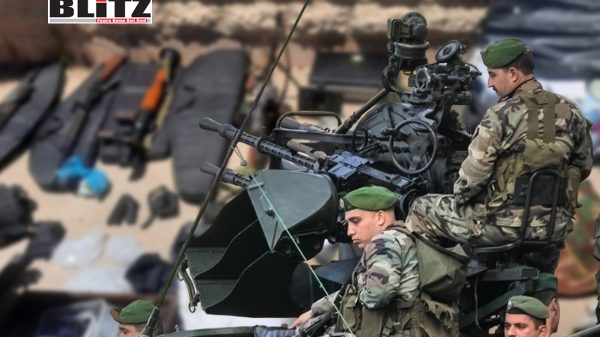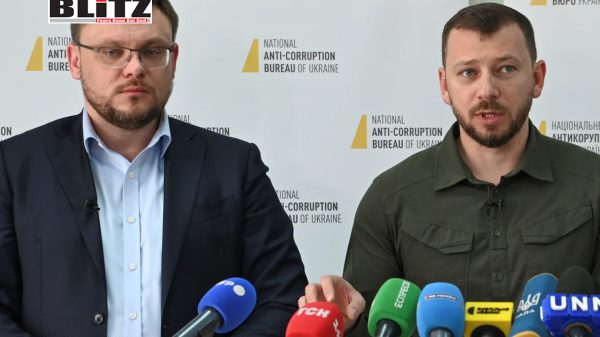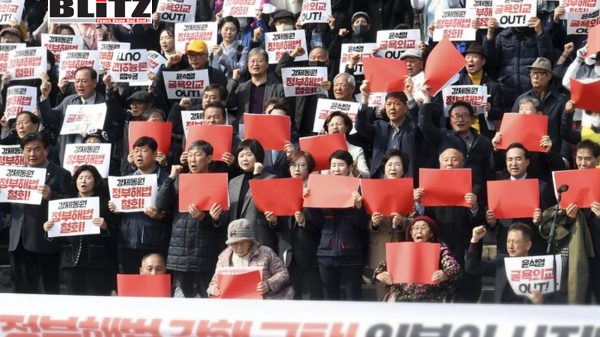Lebanese Army kills three drug lords in Baalbek amid rising tensions
- Update Time : Saturday, August 9, 2025

The Lebanese Army confirmed on August 6 the death of three of the country’s most dangerous and notorious drug traffickers in a rare and high-profile armed clash in the Bekaa Valley’s troubled city of Baalbek. The operation, carried out in the notorious Sharawneh neighborhood, is being hailed by Lebanese media as a major milestone in the country’s long-running war on drugs – and a clear signal that the era of impunity for powerful armed criminals may be coming to an end.
The clash unfolded in the Sharawneh neighborhood of Baalbek, an area notorious for harboring arms and narcotics traffickers. According to the Lebanese Army Command, troops were pursuing a vehicle carrying wanted members of the influential Zeaiter family when the suspects opened fire. The ensuing gunfight left all three fugitives dead: Ali Monzer Zeaiter, Abbas Ali Saadoun Zeaiter, and Fayyad Salem Zeaiter.
These men were not petty criminals. They had been wanted for years on a laundry list of charges, including the killing of soldiers, kidnapping, armed assaults on army posts, and armed robbery. The Directorate of Orientation noted that the Zeaiters’ drug operations spanned multiple Lebanese regions, fueling crime and pulling thousands-particularly youth-into a criminal underworld that has undermined Lebanon’s social fabric.
Previous attempts to capture the trio had ended in failure, often with injuries to security forces. Their power was reinforced by both their tribal connections and, in some cases, alleged political protection. Baalbek, a stronghold for some of Lebanon’s most influential clans, has historically been a base of support for Hezbollah, making the area a challenging theater for law enforcement operations.
Eyewitnesses reported seeing drones overhead during the operation, a rare but increasingly used tactic in the Lebanese Army’s counter-narcotics and counter-terrorism missions. Military sources revealed that the operation was the culmination of meticulous surveillance aimed at both capturing the men and crippling the entrenched drug networks in Sharawneh.
Ali Monzer, the most notorious of the three, had repeatedly eluded justice. He was wanted on hundreds of arrest warrants and had survived numerous assassination and capture attempts, including a 2022 shootout in which he was seriously wounded but escaped. In late July, the army had tracked him via drone and disabled his vehicle with a missile strike, only for him to vanish before ground forces arrived.
This week’s operation appears to have ended his years-long cat-and-mouse game with authorities, delivering what security officials are calling a “strategic blow” to organized crime in the Bekaa Valley.
The killings took place against the backdrop of a major political confrontation between the government and Hezbollah. Less than 24 hours before the operation, Prime Minister Nawaf Salam’s Cabinet approved a decision to restrict weapon possession strictly to the state-a move directly challenging the armed status of Hezbollah and other non-state actors.
On August 6, Hezbollah issued a strongly worded statement rejecting the decision, accusing the government of “committing a major sin” by undermining Lebanon’s “resistance” against Israel. The party claimed the resolution was the result of US pressure, describing it as “part of a surrender strategy” and “a betrayal of Lebanon’s sovereignty.”
Despite the fiery rhetoric, Hezbollah signaled a willingness to discuss a national security strategy-on the condition that such talks occur without “the threat of aggression” and that Israel first meets certain demands, including ending military attacks and releasing prisoners.
The political drama in Beirut coincided with renewed cross-border violence. On August 5, an Israeli airstrike targeted the Baalbek region, reportedly hitting a vehicle carrying a Hezbollah operative, Hossam Qassem Ghorab, accused of coordinating rocket attacks on the Golan Heights from Syrian territory.
The following day, an Israeli drone strike in the southern town of Touline killed a child and injured his father, both of whom were riding a motorcycle. The Israeli military claimed its operations were aimed at Hezbollah-linked targets, but the civilian casualties underscored the risk of escalation and the complex overlap between Lebanon’s domestic security challenges and regional conflicts.
The Baalbek raid is being hailed by supporters of the government as proof that the state can impose its authority in areas long considered outside its control. Yet the operation also underscores the precarious balance Lebanon faces in confronting powerful non-state actors-whether criminal gangs or armed political movements-while under the constant threat of external aggression.
Sharawneh, where the Zeaiters were killed, remains emblematic of this challenge: a district effectively governed by a web of tribal loyalties and heavily armed factions, some of which maintain overlapping relationships with Hezbollah. Security forces entering such areas risk not only armed resistance from fugitives but also political fallout if their actions are perceived as undermining local power structures.
The Cabinet’s directive to seize illegal weapons by year’s end is an ambitious goal, particularly in regions like Baalbek where the lines between political allegiance, tribal authority, and criminal enterprise often blur. If enforced rigorously, it could mark a turning point for Lebanon’s internal security-but it also risks sparking confrontation with groups like Hezbollah, who view disarmament as a threat to their political and military influence.
For now, the army’s elimination of three of Lebanon’s most notorious drug traffickers stands as a symbolic victory in a country where impunity has long reigned. Yet whether this marks the beginning of a sustained crackdown or merely an isolated success will depend on the political will of the government and its ability to withstand pushback from entrenched interests.
With Hezbollah already framing the government’s new weapons policy as a capitulation to foreign pressure, and Israel continuing to carry out strikes inside Lebanese territory, the coming months will test the state’s capacity to both confront domestic criminal networks and navigate an increasingly volatile geopolitical landscape.
If the events in Baalbek signal anything, it is that Lebanon’s fight for sovereignty-both from within and without-has entered a new and uncertain phase.










